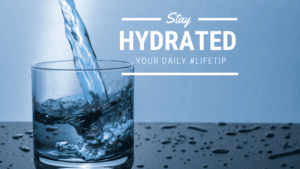Athlete Hydration: Why It Matters to Your Performance

It is crucial to push your limits as an athlete when you train and compete. Yet even one of the most important factors related to performance is overlooked: hydration. Failure to hydrate means can’t perform your best and there are risks of health problems. This article will explore some effective ways to stay hydrated, and top of your game, so that you are energized, focused and stay injury free.
Understanding Hydration Needs
Now, before I get into the tips here, I first want to touch on how important hydration is for an athlete. Water constitutes around 60% of our body weight and is vital to several organism functions, such as:
- Temperature regulation
- Nutrient transport
- Joint lubrication
- Muscle contraction
The Effects of Dehydration
Dehydration can have a staggering impact on performance. Just a 1–2% loss of body water can cause worse endurance performance and an increase in fatigue and even cognitive function. Here are the reasons why hydration is so important:
- Water Loss During Exercise: During vigorous activity, especially in hot conditions, losses of water due to sweating can be very high. A long distance runner, for example, can lose 2-4 liters of fluid during a race.
- Signs of Dehydration: Look out for these symptoms to know if you may be a bit dehydrated:
- Thirst
- Dark-colored urine
- Dry mouth
- Fatigue or dizziness
How athletes can hydrate properly
Having established its significance, let us take a look at some practical advice athletes can use to get enough fluid into the body.
Pre-Workout Hydration
Your body needs the proper prep for a high-performance workout. Consider these strategies:
- Water Intake: 2-3 hours before your workout, consume 16-20 ounces (500 — 600 ml) of water. This allows your body sufficient time to absorb the water and prevents dehydration during exercise.
- Electrolyte Drinks: Drink an electrolyte sports drink if you know you’re going to be sweating a lot. These take care of essential nutrients lost from sweating.
During Workout Hydration
As a rule of thumb, even more so during longer or higher-intensity training sessions, staying hydrated while exercising is critical.
- Drink Little and Often: Instead of gulping down water in thundering great gulps, try to sip little amounts every 15-20 minutes The body absorbs fluids well with this strategy, so the stomach does not get overworked.
- Choose Sports Beverages: If you are exercising for more than an hour, choose a sports drink with electrolytes to help switch over the liquid and energy being lost during long exercise sessions.
Post-Workout Hydration
Recovering lost fluids after exercise is just as important as the pre- and during-exercise period.
- Fluid for Rehydration: At least 16-24 ounces (approx. You can easily do this by tracking your weight with measurement before and after your workout.
- Restock Electrolytes: Including foods or beverages containing electrolytes after a exercise can assist with restoration. Excellent options are bananas (potassium), coconut water (natural electrolytes) or yogurt (calcium).
Specialized Hydration Tips
Personalize Your Hydration
The amount of water each individual needs will be based on body size, type of sport and climate. Below are some details to help you figure out what works for you:
- The Sweat Test: This is a straightforward approach to estimate your fluid loss during exercise and works as follows: weigh yourself before and after training. Pump it out and weigh it, then add the amount of liquid you have been drinking, this will choose your thirst.
- Account for Conditions: If you are doing something outdoors, then you need to consider how temperature and humidity will impact the results. On hot and humid days you may need to consume more than on cool days.
Hydration and Nutrition
And dont forget the foods you consume! As well as staying hydrated make sure you fill your stomach with plenty of fruits and vegetables which have high water content:
- Watermelon (92% water)
- Cucumbers (95% water)
- Strawberries (91% water)
Conclusion
Drinking enough water is crucial for athletes looking to improve performance and recovery. Whether you are looking for pre-workout, post-workout or any of the in-between, knowing your hydration requirements and implementing strategies accordingly can make that difference between average and exceptional that you have sought after.
The takeaway? Hydration is not simply about drinking water — it is a practice that needs to be tailored and recognized through mindful observation about what works for you. That means the next time you are at the track or gym, include your hydration plan along with your workout plan!
Looking to step up your performance? So, implement these hydration tips in your habits today and notice how it changes the way you perform as an athlete!
Water: The Most Basic ElementOften the simplest thing is the key to peak performance
For further reading on the significance of hydration, check out The American Council on Exercise for tips tailored for athletes.

